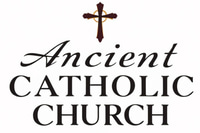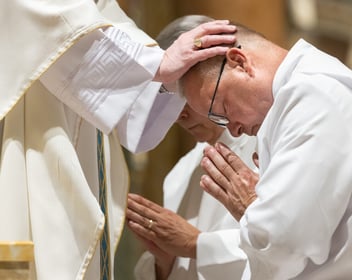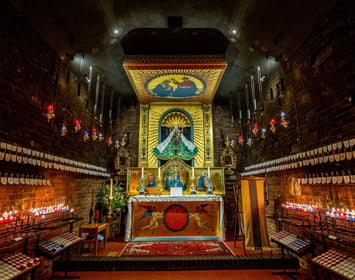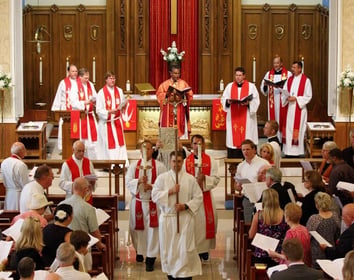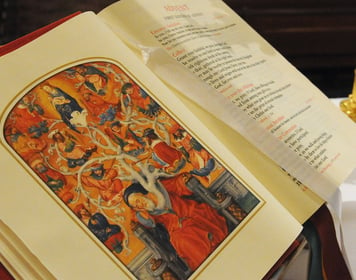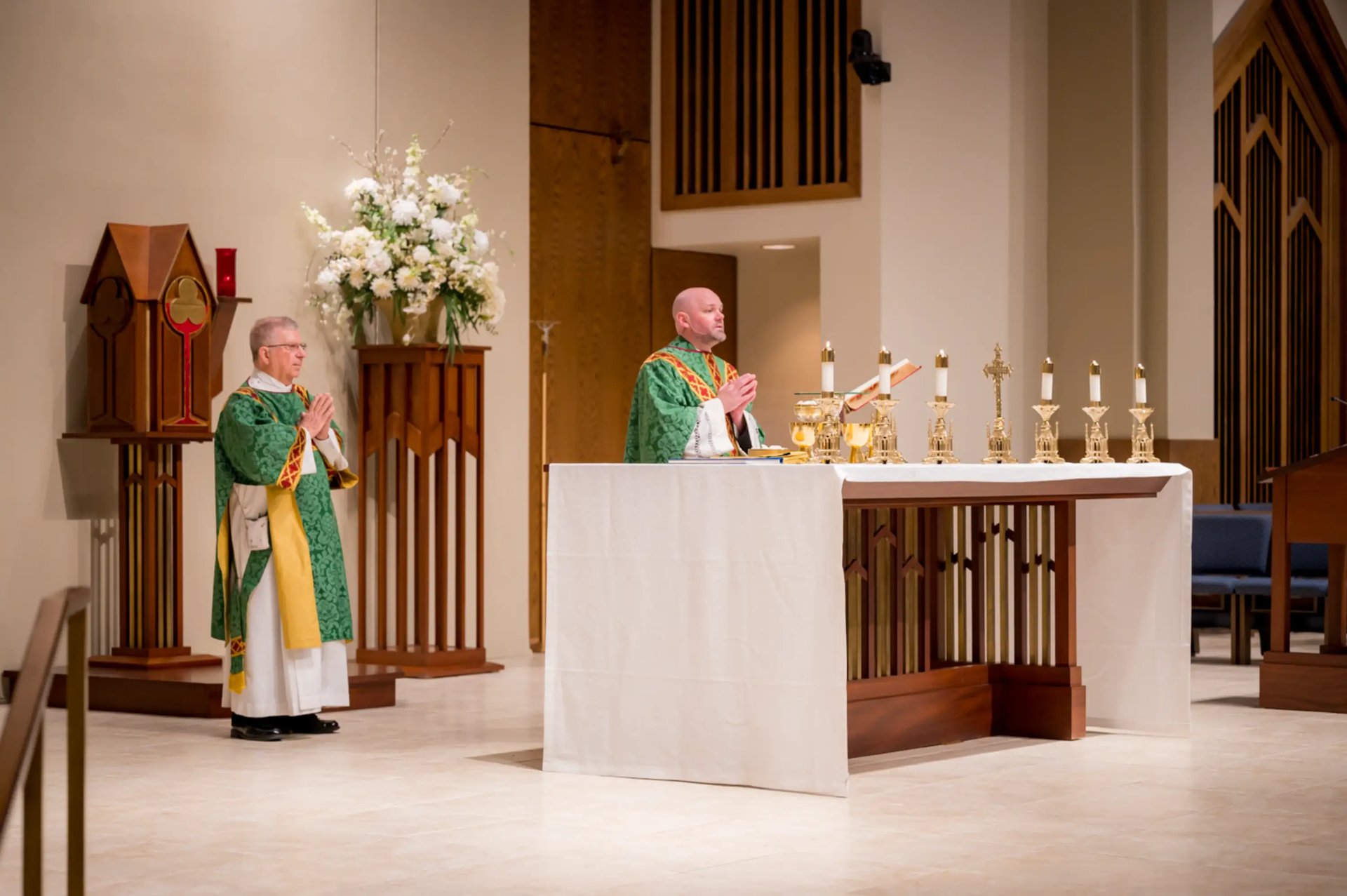
Spiritual Formation
We invite you to discover, belong, and journey with us in faith. Welcome home to the Ancient Catholic Church—where tradition meets mission, and community flourishes.
Spiritual Formation
Policy
Below is a comprehensive spiritual formation policy tailored for prospective seminarian candidates preparing for the permanent diaconate and priesthood within the Ancient Catholic Church. This policy honours the rich liturgical and spiritual heritage of the ancient tradition while integrating rigorous personal prayer, communal worship, pastoral formation, and theological study. It is intended to nurture a deep, authentic relationship with God and to prepare candidates for a lifetime of service steeped in the wisdom of the Church Fathers, sacred liturgy, and the living tradition passed down through the centuries.
For Prospective Seminarian Candidates
Training for the Permanent Diaconate and Priesthood – Ancient Catholic Church
Effective Date: 25th March 2024
1. Introduction
In the sacred lineage of the Ancient Catholic Church, our calling to ministry is not only marked by academic and pastoral preparation but also by a profound spiritual formation anchored in centuries of liturgical tradition, holy mysticism, and the teachings of the early Church Fathers. This policy is designed to foster an environment where seminarian candidates can discern their vocation through disciplined prayer, deep engagement with sacred tradition, and a life of continual conversion and service.
2. Purpose and Objectives
Purpose
Discernment and Vocation:
To guide candidates in discerning the divine call rooted in ancient tradition, affirming that their path to the diaconate or priesthood is both personal and aligned with the eternal heritage of the Church.Holistic Formation:
To provide a framework for spiritual, intellectual, and pastoral formation that combines rigorous theological study with time-honoured devotional practices.Embodied Tradition:
To cultivate a spiritual life that lives out the mysteries of the faith through the constant practice of prayer, liturgy, and sacramental life, reflecting the enduring spirit of the ancient Church.
Objectives
Deepen Relationships with God:
Encourage candidates to form an intimate bond with the Divine through daily prayer, reception of the sacraments, and meditative engagement with Sacred Scripture and the writings of the Church Fathers.Integrate Ancient Practices:
Reintroduce and celebrate practices such as the Divine Office, Lectio Divina, Eucharistic adoration, and traditional devotional rites which have sustained saints through the ages.Foster Community and Accountability:
Develop a closely knit formation community where mutual support, honest dialogue, and accountability between candidates, mentors, and spiritual directors strengthen one's resolve and holiness.Prepare for Eternal Service:
Equip candidates with the spiritual resources and pastoral sensitivity needed for lifelong service, ensuring that they are not only learned but also incarnate the ancient testimonies of holy living and pastoral care.
3. Foundational Principles
Commitment to Holy Tradition:
The ancient liturgical, mystical, and doctrinal traditions of our Church provide both a foundation and a living source of inspiration. Candidates are expected to immerse themselves in the wisdom of early Christian writings and the timeless sacred ceremonies that have shaped our identity.Daily Prayer and Sacramental Life:
An unbroken rhythm of daily prayer, liturgical devotion (including the Liturgy of the Hours in its ancient form), and frequent reception of the Eucharist and the Sacrament of Reconciliation is essential for personal sanctification.Scriptural and Patristic Engagement:
Spiritual formation is deepened through regular study and meditation on Sacred Scripture, as well as through the patristic writings of Saints Augustine, Ambrose, Jerome, and others who have illuminated the mysteries of faith.Spiritual Direction:
Candidates shall engage with an experienced spiritual director rooted in the ancient tradition, ensuring regular, confidential guidance in discerning God’s call amidst the complexities of modern ministry.Integration of Mind and Spirit:
The formation curriculum is designed to unite the intellectual rigors of theology with the disciplines of prayer and contemplation, reflecting the ancient conviction that true wisdom arises from the harmonious union of heart and mind.Community, Service, and Ascetic Practice:
Candidates are called to participate actively in their formation communities, practicing humility, service, and, where appropriate, elements of ascetic discipline that foster detachment from worldly distractions.
4. Formation Curriculum and Programming
A. Personal Prayer and Contemplative Life
Daily Devotion:
A structured routine of morning and evening prayers, including traditional prayers of the Church, the recitation of the Psalms, and contemplative meditation.Lectio Divina and Scriptural Reflection:
Weekly sessions focusing on contemplative reading of Scripture and the writings of the Church Fathers, fostering an environment of silent listening to God.
B. Liturgical and Sacramental Participation
Ancient Liturgy:
Daily participation in the traditional forms of the Mass, with an emphasis on the ancient rite, sacred chant, and the use of traditional liturgical languages (e.g., Latin, Greek, or other historically appropriate languages).Liturgy of the Hours:
Regular observance of the Divine Office, embracing its ancient forms to foster a rhythm of prayer throughout the day.Retreats and Pilgrimages:
Annual spiritual retreats and pilgrimages to sites of ancient Christian significance, facilitating a deeper encounter with the historicity and mystery of the faith.
C. Spiritual Direction and Mentorship
Assignment of a Spiritual Director:
Each candidate will be paired with a seasoned spiritual director, preferably with a solid grounding in the ancient traditions, who will provide personalized guidance and support.Mentorship Programs:
Regular one-on-one and group mentoring sessions with venerable priests, deacons, or seasoned formation directors whose lives exemplify the ancient Catholic spirituality.
D. Community and Accountability
Formation Community Living:
Candidates will participate in an intentional, small community setting—sharing liturgical celebrations, communal dinners, and spiritual exercises—to nurture fraternal bonds.Accountability Groups:
Structured group meetings that offer a safe space for personal reflection, the sharing of struggles, and collective discernment, ensuring that every candidate remains on a path of integrity and spiritual growth.
E. Theological and Pastoral Education
Integrated Studies:
Courses that blend theological scholarship with spiritual praxis, including liturgical theology, patristics, moral theology, and pastoral care rooted in ancient practice.Workshops and Seminars:
Regular sessions that explore the synthesis of ancient devotion with contemporary pastoral challenges, equipping candidates with practical tools for ministerial service.
5. Roles and Responsibilities
For Formation Directors and Spiritual Coordinators
Guidance and Oversight:
Ensure that spiritual formation is interwoven with all facets of academic and pastoral training. Regularly assess candidates’ progress and offer corrective guidance rooted in the Church’s ancient wisdom.Community Building:
Organize and foster an environment that encourages open dialogue, collective prayer, and mutual accountability, reflecting the Church’s ancestral tradition of shared faith.Mentorship Advocacy:
Act as spiritual mentors and advocates, helping candidates navigate the challenges of discernment and daily ministry with compassion and rigor.
For Candidates
Active Engagement
Fully commit to the spiritual formation program, embracing daily prayer, liturgical participation, scriptural study, and communal life as essential markers of their vocation.Openness to Transformation:
Cultivate a spirit of humility and self-examination, willingly accepting guidance and correction on the journey toward priestly or diaconal ordination.Personal Accountability:
Maintain continuous self-reflection, regularly sharing spiritual insights and challenges with assigned spiritual directors and accountability groups.
6. Evaluation, Review, and Continuing Formation
Regular Assessment
Periodic Formation Reviews:
Candidates shall be evaluated on a quarterly basis regarding their spiritual, academic, and pastoral development, with formal feedback provided by spiritual directors and formation staff.Reflective Formation Reports
Collaborative reports between candidates and their mentors will provide a comprehensive record of progress, challenges, and areas for renewed focus.Feedback Integration:
Incorporate anonymous and group feedback sessions into the formation cycle to continuously adapt and enrich the spiritual formation process.
Ongoing Development
Continuous Learning:
Promote lifelong spiritual growth beyond seminary through additional retreats, advanced theological studies, and periodic participation in the ancient liturgical celebrations and community life.Adaptation and Renewal:
The spiritual formation process will be revisited and updated regularly to remain faithful to ancient traditions while engaging contemporary pastoral realities.
7. Confidentiality and Pastoral Sensitivity
Reserved Disclosures:
All personal reflections, spiritual struggles, and formative experiences shared within the community or with spiritual directors are to be treated with the utmost confidentiality, except when disclosure is necessary for pastoral care or in line with safeguarding protocols.Pastoral Counselling:
Dedicated pastoral care resources shall be available to support candidates through moments of personal crisis or spiritual dryness, integrating both ancient spiritual wisdom and contemporary counselling practices.
8. Detailed Guidelines for Mentor–Mentee Interactions
Recognizing that the apprentice model is best nurtured in the context of attentive, personal guidance, each candidate will be paired with a seasoned mentor—preferably an ordained priest or deacon steeped in the ancient tradition. The mentor–mentee relationship is a cornerstone of the formation process, providing both spiritual accountability and practical ministry wisdom.
A. Mentor Selection and Assignment
Selection Criteria for Mentors:
Demonstrated lifelong commitment to the ancient spiritual and liturgical heritage of the ACC.
Proven pastoral experience combined with a reputation for deep personal prayer life and theological literacy.
Willingness to invest time and heart in the spiritual and practical development of the candidate.
Assignment Process:
Candidates are paired with mentors early in the formation process.
Assignments are based on compatibility of ministry style, spiritual temperament, and pastoral context.
Reassignments or additional mentoring arrangements may be made, as needed, to best address the candidate’s growth areas.
B. Regular Meeting Structure
Weekly One-on-One Meetings:
Frequency & Duration:
A minimum of one hour per week is reserved for intentional dialogue between mentor and mentee.Agenda & Content:
Prayer & Reflection: Review the candidate’s personal prayer life, liturgical participation, and any spiritual readings (including the Church Fathers and scripture meditations).
Ministry Experiences: Discuss observations from on-the-job ministry—both the challenges encountered, and the moments of grace witnessed.
Spiritual Journaling: Encourage the candidate to maintain a reflective journal that the mentor reviews periodically. This journal should document daily prayer insights, discernment experiences, and reflections on mentorship sessions.
Setting Goals: Develop short- and long-term formation objectives; these should touch on both personal spiritual growth and practical ministry assignments.
Feedback: Constructive evaluation on practical performance in the field, integration of ancient liturgical practices, and overall spiritual maturity.
Monthly Group Reflection Sessions
Purpose:
Complement individual mentoring with peer support and shared wisdom.Format:
Small group meetings facilitated by formation directors where candidates discuss challenges, celebrate successes, and share insights learned through the apprenticeship.
C. Communication Protocols
Structured Reporting:
Mentors and candidates will work together to produce a periodic (e.g., quarterly) formative report. This report synthesizes insights from the individual sessions, ministry evaluations, and community feedback.
Confidentiality and Trust:
Discussions between mentors and candidates are confidential, fostering an honest and safe environment for spiritual disclosure. Information is shared with formation staff only when necessary (e.g., safeguarding or pastoral care concerns).
Crisis Communication:
In cases where a candidate experiences a spiritual or pastoral crisis, mentors are expected to initiate immediate additional support or secure guidance from the formation director or spiritual coordinator.
D. Evaluation and Dynamic Adaptation
Regular Evaluations:
Mentor–mentee relationships are evaluated on a regular basis (quarterly or semi-annually) to ensure goals are being met and both partners are benefitting meaningfully.
Ongoing Skills Enhancement:
Mentors are encouraged to attend bi-annual workshops on mentor training, spiritual formation trends, and updates in ancient liturgical practices to continuously refine their guidance techniques.
Feedback Loop:
Both mentors and candidates will have an avenue for anonymous feedback on the relationship to facilitate transparent discussion and any necessary adjustments.
9. Additional Liturgical Practice Schedules
In the apprenticeship model at the ACC, daily engagement with liturgical practices is not an abstract, academic requirement but an immersive experience that forms the very heartbeat of ministerial life. The following is a detailed, sample liturgical schedule designed to nurture a sacred rhythm in the life of every candidate.
A. Daily Liturgical Rhythm
A typical day in formation is structured to engage the candidate in the ancient prayer rhythm and communal worship practices:
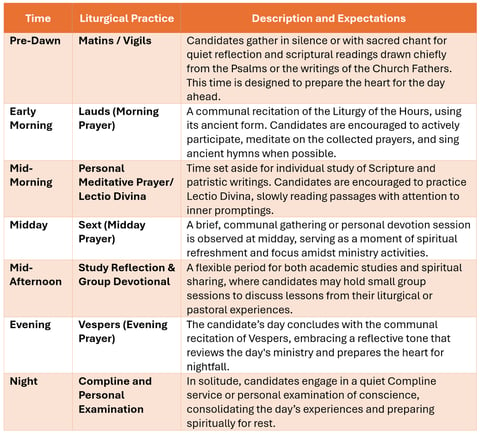

B. Weekly and Special Liturgical Activities
Weekly:
Solemn Mass and Eucharistic Adoration:
Candidates partake in an extended, solemn Mass once a week emphasizing ancient rites (e.g., Gregorian chant, incense rituals). Post-Mass, there is an opportunity for Eucharistic adoration in a dedicated chapel.Community Prayer Evening:
Once weekly, candidates join a formation community prayer meeting that includes extended sharing, intercessions, and a group reflection on liturgical texts.
Monthly:
Retreat Days or Extended Liturgy:
A once-a-month retreat is held at a historic chapel, monastery, or designated pilgrimage site to immerse candidates in the beauty of ancient worship and provide deliberate time for reflection and spiritual renewal.
Annually:
Pilgrimages and Liturgical Celebrations:
An annual pilgrimage to a region rich in ancient Christian heritage is organized. These journeys include visits to venerable sites, participation in ancient liturgical celebrations, and seminars on medieval and early Church practices.
C. Integration with Apprenticeship
Embedded Practice:
While serving in ministry, candidates are encouraged to reflect on their liturgical experiences by leading portions of the Divine Office under supervision. This practical application bridges academic study, personal devotion, and church ministry.
Liturgical Mentoring:
Mentors review recorded sessions or personal reflections on liturgical participation with the candidates. They discuss how these practices enhance effective ministry and foster spiritual depth.
Access to Resources:
Formation centres will supply candidates with ancient liturgical texts, chant guides, and recommended readings from the Church Fathers to support independent study and group sessions.
10. Additional Community-Building Initiatives
The following initiatives are designed to strengthen community bonds, enhance peer support, and encourage collaboration within the formation environment:
1. Weekly Fellowship Meals and Informal Gatherings
Communal Meals:
Establish a tradition of shared meals—such as weekly breakfasts or coffee hours—where candidates, mentors, and formation staff gather in an informal setting. These meals serve as a relaxed venue for personal sharing, reflection on the liturgical season, and the cultivation of lasting relationships.Casual Social Hours:
Organize regular “get-to-know” sessions in the evenings or after daily ministry assignments. These gatherings provide a space to celebrate small successes, exchange experiences, and discuss the challenges of ministry beyond the formal structure of scheduled meetings.
2. Formation Retreats and Weekend Getaways
Retreat Days:
Plan periodic day retreats focused on silent reflection, communal prayer, and guided meditations rooted in ancient spiritual practices. These retreats can feature structured workshops on liturgy, prayer, and the writings of the Church Fathers.Overnight Retreats:
Organize occasional weekend retreats at a monastic center or a historic pilgrimage site. Immersion in an environment that echoes the ancient Church provides candidates the space to disconnect from everyday distractions and deepen their spiritual bonds.
3. Shared Ministry and Service Projects
Community Service Projects:
Engage candidates in organized service projects within the parish or local community. Whether it is through outreach programs, caring for the marginalized, or supporting church-sponsored charitable events, practical acts of service encourage teamwork and mirror the servant leadership of Christ.Collaborative Ministry Teams:
Develop small ministry teams from within the formation community that work on specific parochial or community initiatives. Rotating leadership responsibilities among candidates fosters peer-to-peer mentorship, accountability, and a shared sense of mission.
4. Digital and Hybrid Community Platforms
Online Forums and Prayer Groups:
Create a secure online space (such as a dedicated forum or private social media group) where candidates and mentors can share prayer requests, insightful readings, and formation-related reflections. These platforms help maintain a sense of unity, particularly when candidates are dispersed between on-site ministry and academic studies.Virtual Check-ins and Webinars:
Host regular webinars or virtual roundtable discussions focusing on topics such as liturgical praxis, spiritual challenges, or contemporary pastoral issues. These digital dialogues complement in-person interactions and provide additional flexibility in community building.
5. Small Accountability and Peer Reflection Groups
Accountability Circles:
Organize small, regularly scheduled groups where candidates can share personal experiences, discuss their spiritual journey, and offer mutual encouragement. These groups, overseen by formation directors, encourage honest dialogue in a safe, confidential setting.Peer Mentoring Initiatives:
Pair more experienced candidates with newcomers in a peer-to-peer mentoring program. This initiative nurtures a culture of shared learning and support while reinforcing the apprenticeship model’s collaborative spirit.
6. Cultural, Liturgical, and Artistic Expression
Liturgical Celebrations and Feast Days:
Host special events around holy days or major liturgical seasons, including traditional feasts, processions, or musical celebrations of Gregorian chant. These events invite not only formation candidates but also broader community participation, reinforcing the connection to ancient practice.Artistic Workshops and Creative Expression:
Offer workshops in sacred art, iconography, and liturgical music. Opportunities for creative expression, such as calligraphy sessions for copying liturgical texts or art therapy in a sacred context, allow candidates to celebrate and preserve ancient traditions in a modern format.
7. Pilgrimages and Inter-Parochial Exchanges
Annual Pilgrimages:
Organize pilgrimages to sites historically significant to the ancient Christian tradition. These journeys provide shared spiritual milestones and foster a deeper understanding of how the ACC’s heritage shapes ministry today.Inter-Parochial Exchanges:
Facilitate exchange programs with formation communities in other parishes or even other regions within the ACC. Such initiatives broaden perspectives, encourage diverse ministry experiences, and strengthen the nationwide or trans-regional network of communities.
Integration and Impact
By incorporating these community-building initiatives, the ACC’s formation program ensures that every candidate not only masters the academic and practical skills of ministry but also grows within a nurturing, supportive community that truly mirrors the early Church’s communal life. This strong network of personal relationships, shared worship experiences, and collaborative service not only enriches individual formation but also solidifies the overall mission of creating ministers who honour both ancient tradition and contemporary pastoral needs.
These additional initiatives are intended to be flexible and adaptive to the needs of each formation community while remaining grounded in the timeless values and practices of the Ancient Catholic Church.
Digital Integration Strategies for Spiritual Formation
1. Virtual Communication and Collaborative Platforms
Secure Online Community Hubs
Tool Examples: Slack, Microsoft Teams, or private forum software (e.g., Discourse).
Implementation:
Channels and Groups: Create dedicated channels for various topics such as daily prayer reflections, liturgical discussion, mentorship feedback, and ministry challenges.
Moderation Protocols: Appoint formation coordinators as moderators to ensure discussions remain respectful, confidential, and constructive.
Scheduled Announcements: Use these hubs to share calendar updates, community reminders, and important liturgical or formation resources.
Video Conferencing and Virtual Meetings
Tool Examples: Zoom, Google Meet, or Microsoft Teams.
Implementation:
Regular Check-Ins: Schedule weekly one-on-one mentor–mentee video sessions and monthly group synchronous meetings to discuss progress and challenges.
Breakout Sessions: Utilize breakout rooms during larger sessions to enable smaller discussions, focused workshops, or virtual accountability groups.
Recording and Archiving: With appropriate confidentiality assurances, record sessions for later reflection and for candidates who might have scheduling conflicts.
2. Digital Resource Libraries and Learning Management Systems
Cloud-Based Document Repositories
Tool Examples: Google Drive, Dropbox, or Microsoft OneDrive.
Implementation:
Resource Sharing: Maintain a centralized library with ancient liturgical texts, patristic writings, academic resources, and reflective journaling guides.
Collaborative Editing: Encourage real-time collaboration on formation projects or liturgical reflections, allowing both mentors and candidates to contribute dynamically.
Learning Management Systems (LMS)
Tool Examples: Moodle, Blackboard, or Canvas.
Implementation:
Course Integration: Integrate online modules covering theology, liturgical studies, and pastoral care with interactive exercises and discussion forums.
Progress Monitoring: Utilize LMS features to track individual formation progress, submit reflective assignments, and provide mentor feedback.
Self-Paced Study: Embed asynchronous learning opportunities to accommodate on-the-job ministry challenges and varying schedules.
3. Digital Journaling and Reflective Practice
Mobile and Web-Based Journaling Tools
Tool Examples: Day One, Journey, or a custom digital portfolio integrated into the LMS.
Implementation:
Daily Reflections: Encourage candidates to record daily spiritual reflections, prayer insights, and ministry observations.
Mentor Access: Provide controlled access to mentors for periodic review, ensuring that feedback remains both constructive and confidential.
Data Integration: Use journaling outputs to populate part of the quarterly formative reports, offering a comprehensive view of each candidate’s spiritual journey.
4. Virtual Retreats and Interactive Liturgical Experiences
Online Retreat Platforms
Tool Examples: Zoom-enabled retreats, dedicated retreat apps, or platforms such as Gatherly.
Implementation:
Immersive Retreats: Organize virtual retreats that include guided meditations, interactive breakout sessions, and shared prayer experiences focused on the ancient liturgical tradition.
Hybrid Formats: Combine live-streamed sessions with asynchronous content (e.g., pre-recorded lectures on Church Fathers or ancient liturgical history) for flexible participation.
Interactive Elements: Use polls, shared digital whiteboards, and small group discussions to foster engagement during these retreats.
Digital Liturgical Streaming
Tool Examples: YouTube Live (via private channel), Vimeo, or dedicated church streaming services.
Implementation:
Live Broadcasts: Stream communal liturgical celebrations, Masses, and prayer sessions so that candidates in remote placements can participate in real time.
Archiving Services: Maintain an archive of past services, retreats, and workshops for ongoing review and reflection, ensuring all sessions are accessible and searchable.
5. Digital Accountability and Peer Support Networks
Dedicated Accountability Platforms
Tool Examples: Private groups on Slack, WhatsApp (with proper security controls), or a dedicated mobile app for accountability.
Implementation:
Peer Check-Ins: Establish small groups where candidates can share experiences, discuss challenges, and celebrate successes on a regular digital basis.
Scheduled Reminders: Utilize digital calendars or mobile notifications to prompt daily spiritual practices, meeting times, and group reflection sessions.
Feedback Loops: Implement online surveys or discussion threads where candidates can anonymously offer feedback on the formation process, fostering continuous improvement.
6. Cybersecurity, Confidentiality, and Best Practices
Secure Platforms:
Ensure all selected digital tools support encryption and have robust privacy features to protect sensitive spiritual reflections and personal data.
Training and Protocols:
Offer periodic training for candidates and mentors on digital literacy, data privacy, and cyber-ethics to preserve the confidentiality of formation activities.
Usage Guidelines:
Develop clear protocols outlining which types of information may be shared on digital platforms and how to handle confidential discussions—mirroring the traditional confidentiality expected in spiritual direction.
7. Integration Summary Table
Implementation and Continuous Improvement
Training Workshops:
Conduct digital literacy workshops periodically to ensure that both candidates and mentors are comfortable with the tools.
Feedback and Evaluation:
Establish regular review sessions and surveys to assess the effectiveness of digital strategies and adapt them based on community feedback.
Technology Updates:
Monitor emerging digital tools and update the ACC’s platforms as needed to continuously improve the formation experience.
By integrating these digital strategies, the ACC preserves its cherished ancient traditions while embracing modern technologies that enhance the formation process. This comprehensive digital integration supports a robust community ecosystem, ensuring candidates receive continuous spiritual nourishment and community support throughout their apprenticeship and beyond.
This Spiritual Formation Policy affirms our commitment to preparing seminarian candidates for the permanent diaconate and priesthood through a rigorous yet compassionate process grounded in the ancient heritage of the Catholic faith. By mingling the timeless practices of the early Church with thoughtful, modern pastoral guidance, we strive to shape ministers who are spiritually resilient, theologically sound, and deeply rooted in the mystery of Christ’s love.
Through prayer, community, mentorship, and disciplined study, candidates are invited to embark on a lifelong journey of transformation—a journey that promises the light of ancient truth to illuminate every step of pastoral service.
Approval and Adoption:
This policy has been formally reviewed and approved by the Formation Council of the [Ancient Catholic Church or Diocese Name] and is to be implemented in all associated formation centres and programs. All formation staff, spiritual directors, and seminarian candidates are expected to adhere to the guidelines contained herein with fidelity and humility.
Signed:
The Most Reverend Felix Gibbins OSB Cam
Archbishop of the United Kingdom
1st January 2024




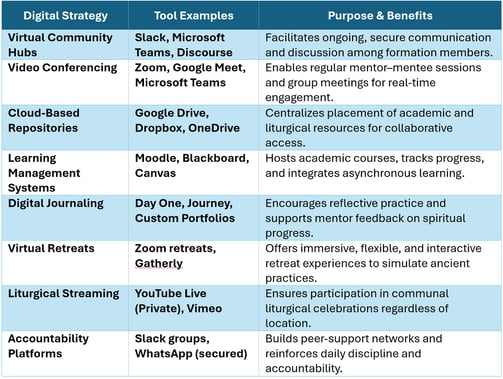

Sacred Encounters Between God and His People
Fostering faith, inclusion, and compassionate service within a vibrant community and beyond.
Seeking a Vocation?
Candidates undertake their theological studies through a robust online program designed to balance academic rigor with vocational practice.
Is God Calling Me?
Vocational discernment is not a solitary journey—our church community is here to support you, share in your hopes, and guide you every step of the way.
We provide a nurturing space where your unique gifts will be cultivated, and your call to serve will be answered with love and support.
Formation Programme
Prayer for Vocations
Permanent Diaconate
Spiritual Formation Policy
Guide those discerning their vocation to listen to Your voice with open hearts and willing spirits. Inspire priests, deacons, religious sisters and brothers...
In a world that desperately needs the healing touch of Christ's message, your journey into this sacred vocation could be the key to bringing hope and light to those around you.
Honouring the liturgical and spiritual heritage of the ancient tradition while integrating rigorous prayer, worship, pastoral formation, and theological study.
Ancient Catholic Church
Embracing faith, inclusion, and compassionate service together.
ST THOMAS AQUINAS SEMINARY
© 2025. All rights reserved.
QUICK LINKS
